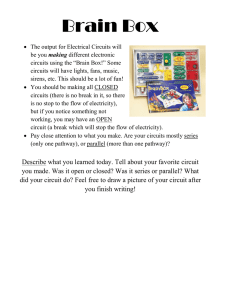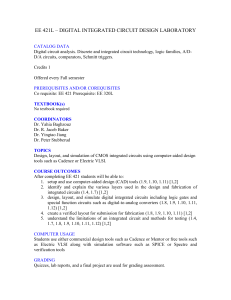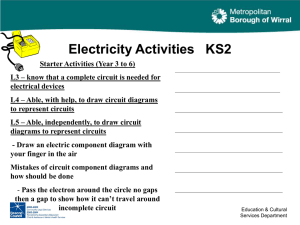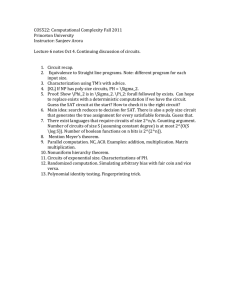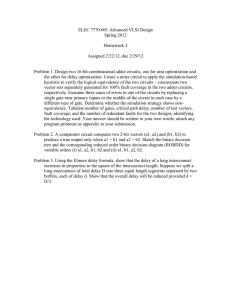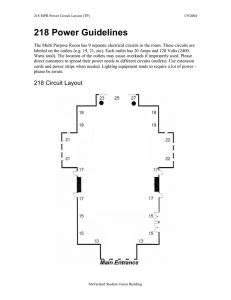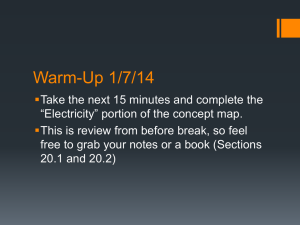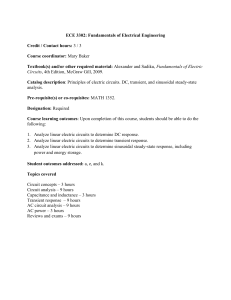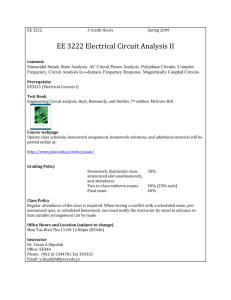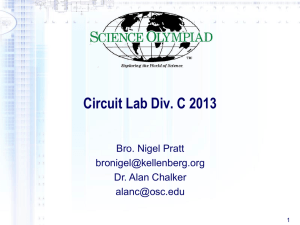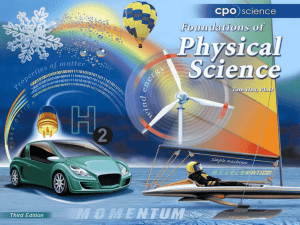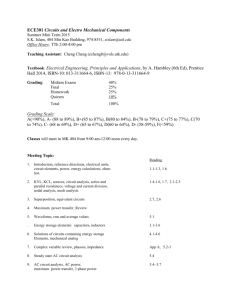EE221L - Circuits II Laboratory
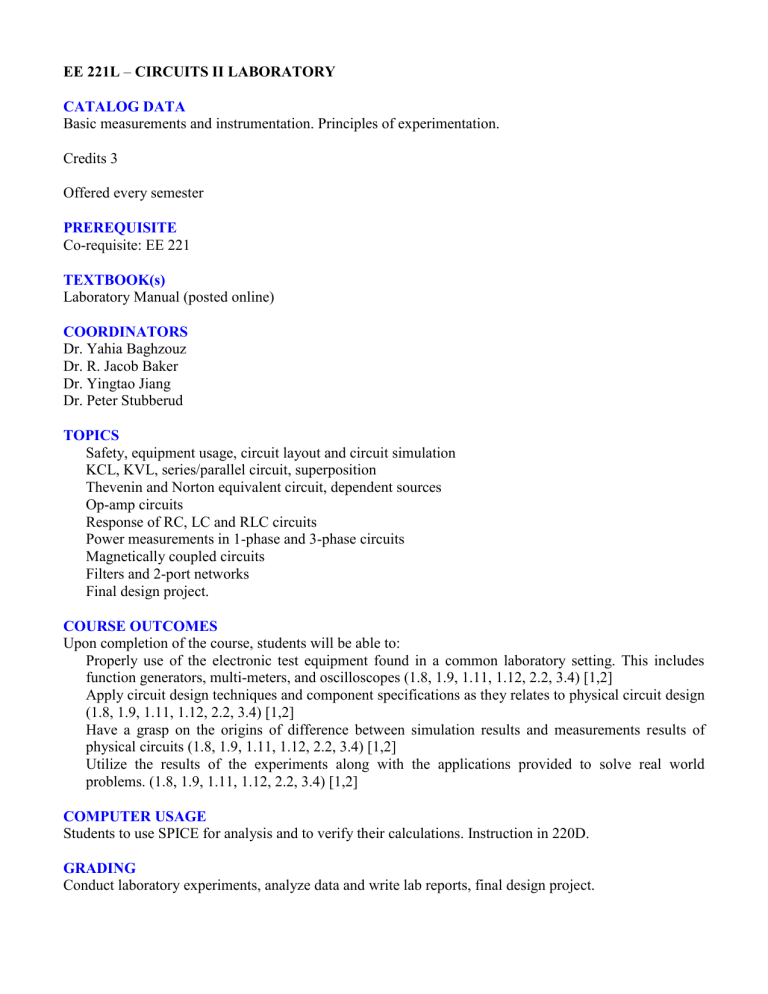
EE 221L
–
CIRCUITS II LABORATORY
CATALOG DATA
Basic measurements and instrumentation. Principles of experimentation.
Credits 3
Offered every semester
PREREQUISITE
Co-requisite: EE 221
TEXTBOOK(s)
Laboratory Manual (posted online)
COORDINATORS
Dr. Yahia Baghzouz
Dr. R. Jacob Baker
Dr. Yingtao Jiang
Dr. Peter Stubberud
TOPICS
Safety, equipment usage, circuit layout and circuit simulation
KCL, KVL, series/parallel circuit, superposition
Thevenin and Norton equivalent circuit, dependent sources
Op-amp circuits
Response of RC, LC and RLC circuits
Power measurements in 1-phase and 3-phase circuits
Magnetically coupled circuits
Filters and 2-port networks
Final design project.
COURSE OUTCOMES
Upon completion of the course, students will be able to:
Properly use of the electronic test equipment found in a common laboratory setting. This includes function generators, multi-meters, and oscilloscopes (1.8, 1.9, 1.11, 1.12, 2.2, 3.4) [1,2]
Apply circuit design techniques and component specifications as they relates to physical circuit design
(1.8, 1.9, 1.11, 1.12, 2.2, 3.4) [1,2]
Have a grasp on the origins of difference between simulation results and measurements results of physical circuits (1.8, 1.9, 1.11, 1.12, 2.2, 3.4) [1,2]
Utilize the results of the experiments along with the applications provided to solve real world problems. (1.8, 1.9, 1.11, 1.12, 2.2, 3.4) [1,2]
COMPUTER USAGE
Students to use SPICE for analysis and to verify their calculations. Instruction in 220D.
GRADING
Conduct laboratory experiments, analyze data and write lab reports, final design project.
ABET COURSE OUTCOMES
1. The appropriate technical knowledge and skills
8. An ability to design a system, component, or process to meet desired needs within realistic constraints
9. An ability to identify, formulate, and solve engineering problems
11. An ability to use the techniques, skills, and modern engineering tools necessary for engineering practice.
12. An ability to design and conduct experiments, as well as to analyze and interpret data
2. The appropriate interpersonal skills
2. An ability to function on multidisciplinary teams
3. The knowledge and skills to be responsible citizens
4. A knowledge of contemporary issues
UULO COURSE OUTCOMES
1. Intellectual Breadth and Lifelong Learning
2. Inquiry and Critical Thinking
3. Communication
4. Global/Multicultural Knowledge and Awareness
5. Citizenship and Ethics
COURSE PREPARER AND DATE OF PREPARATION
R. Jacob Baker, Sunday, January 18, 2015
